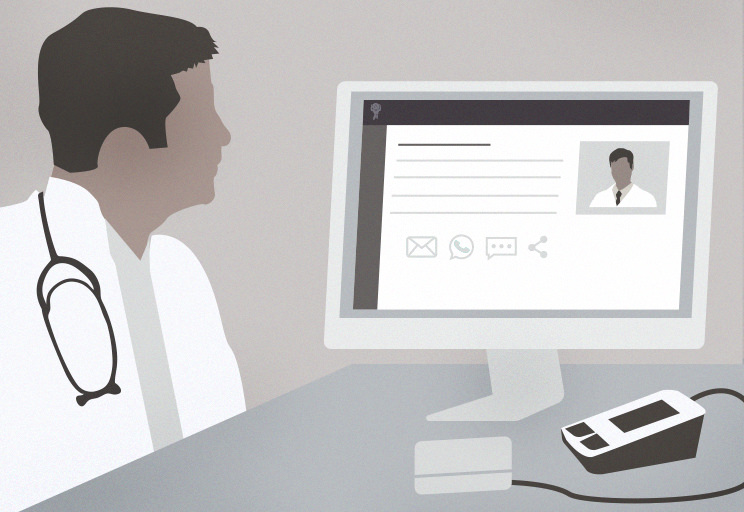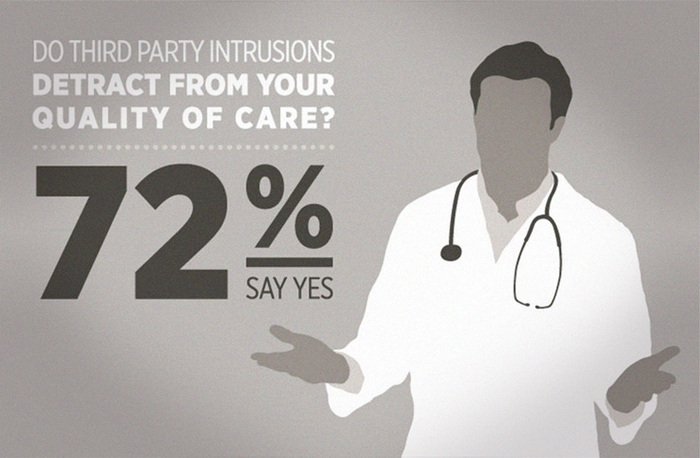
If you look back on your time as a healthcare professional, can you pinpoint your most inspired moments? The times when you were on fire? You know, like that time you came up with a super unconventional treatment plan that worked really well. Or when you figured out how to get alternative treatment for a patient who seriously needed help but couldn’t swing it because of insurance restrictions. Or how about that time you listened to the nagging in the back of your mind, “randomly” called your patient to check in and learned they were in the middle of a medical crisis? You really saved the day that time.
Chances are you’ll recognize a common thread in all those moments of greatness. You were practicing from a place of joy. You loved your job. You were personally invested in your patients. You thought about work even when you weren’t at the office – and not in a bad way. You did what you did because it’s what you do and who you are. Your best work, your most thoughtful treatment plans, your most careful attention to detail, and your most inspired methods of communication come when you’re happy.
What if you’re not practicing from a place of joy?
If you’re not there, if that’s not you, you’re missing out on all the good stuff. Seriously – healthcare is exhausting, challenging and rewarding all in the same five minutes, which makes for one hell of an emotional rollercoaster. But the joy. The joy makes it all worth it. It’s the why behind what you do. Or at least it should be. If it’s not, though, all is not lost so don’t worry. You can get there. There’s a way out. You can make changes in the way you practice medicine that relieve pressure, ease tension, and actually give you something to look forward to. Just ask the traditional family doc who loved seeing patients during the day but absolutely dreaded the mountain of paperwork waiting for him after the last one went home. He transitioned to Direct Care and put all that paper right through the shredder. Or you could ask the PA who was stressed from the very beginning of her morning because her first patient ran late and she knew the rest of the day would continue to spiral out of control. She opened a Direct Care practice and now gets to spend at least 30 minutes with each patient. Thirty. Minutes.
Oh, don’t forget to ask the veteran physician who had no desire to even practice anymore because of all the insurance rules and regulations (not to mention he’s tired of keeping up with billing codes). Instead of retiring, he chose DPC. Now he works when he wants to work, with patients he truly connects with, and deals directly with them instead of a mess of third party interferers.
Strive for joy. You owe it to yourself.
You were called to this profession. You may think you chose healthcare, but the really is that it chose you. You were meant for it, and you have a responsibility to do your very best work. You have an obligation to your patients to show them what genuine, personalized healthcare looks like. So strive for the joy that inspires your greatness. Do what you have to do to give your patients real value. If that means adjusting your hours to make sure you have time for you outside the office, do it. If it means getting into the office early to do extra research on the diagnosis you saw yesterday, do it. If it means reading that novel you’ve convinced yourself you don’t have time for, just do it. When you’re happy and you know it, your patients will, too. (Yeah, go ahead. Clap your hands…)
DPC paves the way for joy.
Let’s pretend you’re in a traditional healthcare environment and you’re feeling…stuck. Frustrated. Irritated. Burnt out. Anything other than joyful. You may not have the flexibility to create joy yourself, but remember that “way out” from earlier? It’s Direct Care. Direct Primary Care is the path to joy. The path to running your practice the way you’ve always wanted to. The paved road leading straight to healthy doctor-patient relationships.
When the surefire way to cut bureaucratic red tape and practice medicine from a place of joy invites you over for dinner, you accept. It’s just that simple. (Psst. DPC is sending you an invitation right now!!!)
So have you recalled the last time you were really, really great at practicing medicine? Maybe it was yesterday and fresh in your mind. Or maybe it was so long ago you barely remember how intense that kind of rush feels. Either way, we hope you crave more of it.








